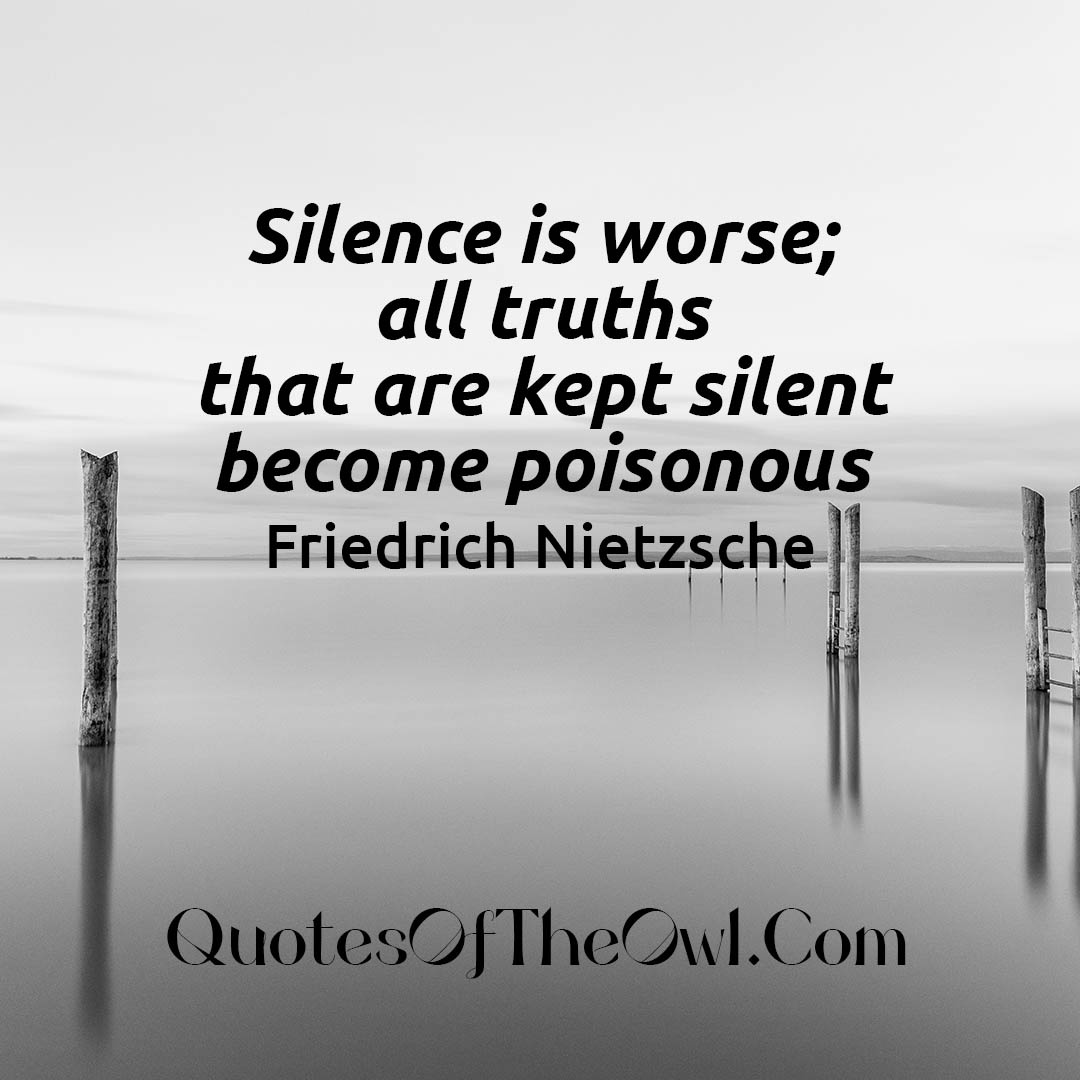What is the meaning of Friedrich Nietzsche’s Quote: “Silence is worse; all truths that are kept silent become poisonous”?
Friedrich Nietzsche, a German philosopher, is known for his many thought-provoking quotes. One of his most famous quotes states, “Silence is worse; all truths that are kept silent become poisonous.” This quote has been widely discussed and debated since it was first uttered, as it carries deep meaning and implications for both individuals and society as a whole.
Understanding the quote
At its core, Nietzsche’s quote is about the importance of truth and the negative consequences of keeping it silent. He believed that truth was essential for personal growth and societal progress. In his view, silence was worse than speaking the truth because it allowed for falsehoods to thrive unchecked.
Nietzsche believed that keeping truths silent allowed them to fester and become toxic. When truth is kept silent, it can cause harm to individuals and society as a whole. By speaking the truth, one can bring about positive change and prevent the spread of harmful ideas.
The Poisonous Effect of Silence
Silence can be harmful in many ways. For example, when people remain silent about injustice, it can lead to systemic oppression and perpetuate harmful power dynamics. When truth is kept silent, it can create a culture of dishonesty and mistrust.
In the personal realm, silence can also be harmful. When people do not speak up about their feelings, it can lead to resentment and emotional toxicity. When individuals keep secrets from each other, it can erode trust and create a rift in relationships.
The Power of Speaking Truth
Speaking truthfully is important for personal growth and societal progress. When individuals speak their truth, they can begin to heal and move forward. In society, speaking truthfully can bring about positive change and lead to a more just and equitable world.
Nietzsche believed that truth was essential for personal growth and the creation of meaning. By speaking the truth, individuals can create a more authentic and fulfilling life for themselves.
Criticisms of the quote
While Nietzsche’s quote has been widely discussed and debated, it is not without its criticisms. Some argue that there are times when silence is necessary, such as in situations where speaking the truth could cause harm. For example, in situations where revealing a secret could put someone’s life in danger, remaining silent may be the best course of action.
Others argue that Nietzsche’s perspective is limited, as not all truths are worth speaking. Some truths may be hurtful or unnecessary to share, and choosing to remain silent can be a sign of empathy and respect for others.
Conclusion
In conclusion, Nietzsche’s quote “Silence is worse; all truths that are kept silent become poisonous” highlights the importance of truth and the negative consequences of keeping it silent. While there may be times when remaining silent is necessary, Nietzsche believed that speaking truthfully was essential for personal growth and societal progress. By speaking the truth, individuals can create a more authentic and fulfilling life for themselves and bring about positive change in the world.

